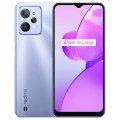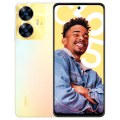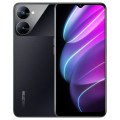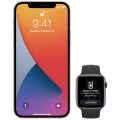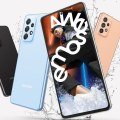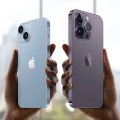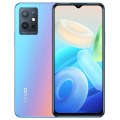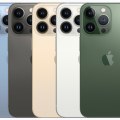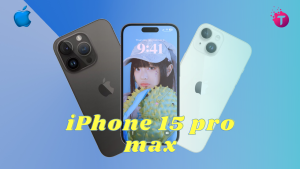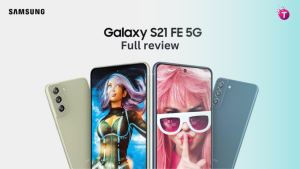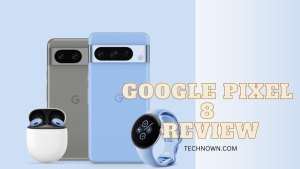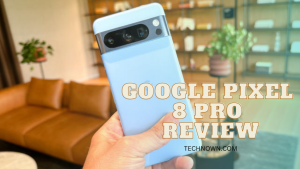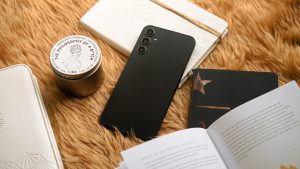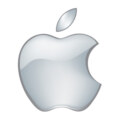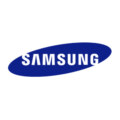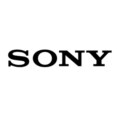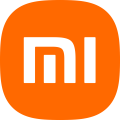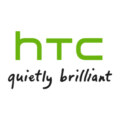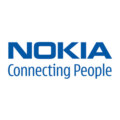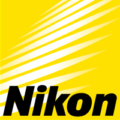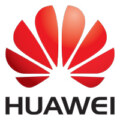Realme TechLife Watch S100
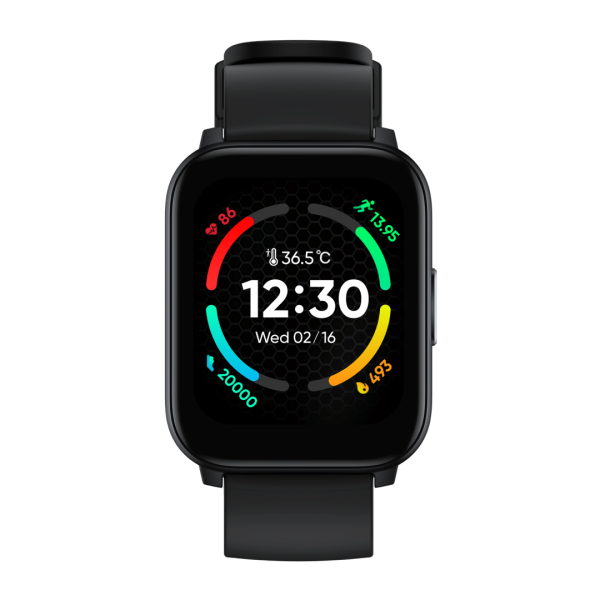


-
CPU:
-
RAM: No
-
Storage: No
-
Display: 1.69 inches
-
Camera: No
-
OS: Proprietary OS
Realme TechLife Watch S100:
A Closer Look at its Specifications
Realme has made a name for itself in the tech industry. By offering feature-packed devices at affordable prices. Continuing its tradition of innovation, Realme has recently launched the TechLife Watch S100. A smartwatch that combines style, functionality, and cutting-edge features. In this article, we’ll take a closer look at the specifications of the Realme TechLife Watch S100. And explore what sets it apart from the competition.
Display:
The Watch features a vibrant 1.4-inch touchscreen display. With a resolution of 320 x 320 pixels, the display offers crisp and clear visuals. Making it easy to read notifications, track fitness metrics. And navigate through the watch’s interface. The touchscreen is highly responsive, allowing for smooth and effortless interaction.
Design and Build:
Sporting a sleek and stylish design. The Realme TechLife Watch S100 is crafted to complement your personal style. It features a lightweight and ergonomic design. Making it comfortable to wear for extended periods. The watch is available in a variety of strap options. Allowing users to choose the one that best suits their preferences.
Fitness and Health Tracking:
Realme TechLife Watch S100 is a comprehensive fitness companion. It comes equipped with a high-precision PPG optical heart rate sensor. That continuously monitors your heart rate in real-time. This feature is particularly useful during workouts. Helping you maintain your target heart rate zone for optimal results.
Besides to heart rate monitoring. The watch offers a range of fitness tracking features. It includes 15 different sports modes, such as running, cycling, yoga, and more. These modes accurately track your workouts, providing valuable insights into distance. Calories burned, pace, and other relevant metrics. Whether you’re a fitness enthusiast or a casual exerciser. The Realme TechLife Watch S100 caters to your needs.
Sleep Tracking:
Understanding the importance of quality sleep for overall well-being. Realme has incorporated sleep tracking functionality into the TechLife Watch S100. The watch tracks your sleep patterns and provides detailed analysis. Including data on deep sleep, light sleep, and REM sleep. Armed with this information, you can make informed decisions. To improve your sleep habits and optimize your rest.
Smart Notifications and Connectivity:
The Watch seamlessly integrates. With your smartphone to keep you connected on the go. You can receive call notifications, text messages. And app alerts directly on your wrist. The watch supports a wide range of popular apps. Ensuring you never miss an important notification.
Battery Life:
Battery life is always a concern for smartwatch users. But the Realme TechLife Watch S100 addresses this with its impressive battery performance. With its high-capacity battery, the watch offers up to 15 days of usage on a single charge. This means you can wear it without worrying about frequent charging interruptions.
Compatibility:
It’s compatible with both Android and iOS devices. To unlock the full potential of the watch, users can download the Realme Link app. Which provides a user-friendly interface for customization, data analysis, and firmware updates.
In conclusion, the Watch is an outstanding smartwatch. That brings together style, functionality, and advanced features. With its impressive display, fitness tracking capabilities, sleep monitoring. And seamless connectivity, it caters to the needs of fitness enthusiasts. And individuals looking to lead a healthier lifestyle. Realme continues to set new standards in the smartwatch market. Offering consumers a compelling option at an affordable price point.
Specs
General
| Device Type | Watch |
| Model | TechLife Watch S100, RMW2103 |
| Announced | 10 March, 2024 |
| Released | 24 December, 2024 |
| Status | Available |
| Price | 4000 |
Design
| Type <strong>Design Type</strong> called form factor refers to a mobile phone's size, shape, and style as well as the layout and position of major components of phone. There are three major form factors seen in mobile phones => bar phones, folding phones and sliding phones. | Bar |
| Dimensions | 35.8 x 25.1 x 11.6 mm (1.41 x 0.99 x 0.46 in) |
| Weight | 34 g (1.20 oz) |
| Protection |
Glass front, plastic back, plastic frame |
Network
| SIM <strong>SIM</strong> (Subscriber Identity Module) is a small card that contains mobile network subscriber's account information. This allows the phone using the card to attach to a mobile network. The SIM card is most commonly associated with GSM and UMTS mobile networks. Moving a SIM card from one phone to another allows a subscriber to switch mobile phones without having to contact their mobile network carrier. SIM cards can also be used by a phone to store limited amounts of data, such as phone numbers and text messages. | Standard SIM |
| Dual SIM | No |
Display
| Display Type <strong>Display Technology => </strong> A number of display technologies and types used in mobile phones => TFT (Thin Film Transistor), IPS (In-Place Switching), OLED (Organic Light Emitting Diode), AMOLED (Active-Matrix Organic Light-Emitting Diode), Super AMOLED (an even advanced version of AMOLED), Resistive Touchscreen (Resistive touchscreens contain two layer of conductive material with a very small gap between them which acts as a resistance), Capacitive Touchsceen (Capacitive touchscreen technology consists of a layer of glass coated with a transparent conductor) | IPS LCD capacitive touchscreen, 16M colors |
| Size | 1.69 inches |
| Resolution | 240 x 280 pixels (~218 ppi density) |
| Features |
530 nits (peak) |
Media
| Alert Types | No alert |
| Loudspeaker | No |
Software
| Operating System <strong>OS => </strong> Every computer system run on a base software called Operating System (OS). Operating System controls all basic operations of the computer (such as smartphone, PDAs, tablet computers and other handheld devices). The Operating System allows the user to install and run third party applications (apps), apps are used to add new functionality to the device. | Proprietary OS |
| Facebook <strong>Facebook</strong> is a popular free social networking website that allows registered users to create profiles, upload photos and video, send messages and keep in touch with friends, family and colleagues. The site is available in 37 different languages. | |
| Youtube <strong>Youtube</strong> is a popular free video-sharing website, Youtube is the largest video sharing site in the world, Millions of users around the world have created accounts on the site that allow them to upload videos that anyone can watch. |
Hardware
| RAM (Memory) <strong>RAM</strong> (Random Access Memory) is a type of computer memory that can be accessed randomly, any byte of memory can be accessed without touching the preceding bytes that allows information to be stored and accessed quickly from random locations. RAM is the most common type of memory found in computer systems, smartphones, tablets and other electronic devices. | 512 MB |
| Sensors <strong>Sensors</strong> are electronic components that detects and responds to some type of input from the physical environment. The specific input could be light, heat, motion, moisture, pressure and location, The output is generally a signal that is converted to use in computing systems, a location sensor, such as a GPS receiver is able to detect current location of your electronic device. |
Accelerometer, heart rate, SpO2, thermometer (body temperature) |
Connectivity
| Bluetooth <strong>Bluetooth</strong> is a wireless communications technology for exchanging data between mobile phones, headsets, computers and other network devices over short distances without wires, Bluetooth technology was primarily designed to support simple wireless networking of personal consumer devices. | 5.0, A2DP, LE |
| Infrared <strong>Infrared</strong> connectivity is an old wireless technology used to connect two electronic devices. It uses a beam of infrared light to transmit information and so requires direct line of sight and operates only at close range. | |
| Wi-fi <strong>Wi-Fi</strong> is a popular wireless networking technology using radio waves to provide high-speed network connections that allows devices to communicate without cords or cables, Wi-Fi is increasingly becoming the preferred mode of internet connectivity all over the world. | No |
| Wi-fi Hotspot | |
| USB | No |
| NFC <strong>NFC</strong> (Near field communication) is a set of standards for smartphones and similar devices to establish peer-to-peer radio communications with each other by touching them together or bringing them into proximity, usually no more than a few inches. | |
| HDMI <strong>HDMI</strong> (High-Definition Multimedia Interface) is a compact audio/video interface for transferring uncompressed video data and compressed or uncompressed digital audio data from a HDMI-compliant source device to a compatible computer monitor, video projector, digital television, or digital audio device. | |
| Wireless Charging <strong>Wireless Charging</strong> (Inductive Charging) uses an electromagnetic field to transfer energy between two objects. This is usually done with a charging station. Energy is sent through an inductive coupling to an electrical device, which can then use that energy to charge batteries or run the device. | Yes |
Data
| GPRS <strong>GPRS</strong> (General Packet Radio Service) is a packet oriented mobile data service on the 2G and 3G cellular communication system's global system for mobile communications (GSM), Generally, GPRS is used for the purpose of wireless data transfer, such as sharing pictures and videos or browsing the Internet via a mobile phone connection. | |
| EDGE <strong>EDGE</strong> (Enhanced Data GSM Environment) is a wireless network technology generally considered the next step in the 2G network offers data transfer rates up to four times faster than ordinary GSM networks, Generally, EDGE is used for the purpose of wireless data transfer, such as sharing pictures and videos or browsing the Internet via a mobile phone connection. | |
| Speed | No |
Messaging
| SMS <strong>SMS</strong> (Short Messaging Service) is a text messaging service component of phone, Web, or mobile communication systems. It uses standardized communications protocols to allow mobile phone devices to exchange short text messages over the networks. | No |
| MMS <strong>MMS</strong> (Multimedia Messaging Service) is a standard way to send messages that include multimedia content (audio clips, video clips and images) to and from mobile phones over wireless networks using the WAP protocol. |
Battery
| Battery Type <strong>Battery Type => </strong> Cell phones run on various kinds of batteries depending on the manufacturer, phone size or shape and features. There are basically four types of cell phone batteries => Lithium Polymer, Lithium Ion, Nickel Metal Hydride and Nickel Cadmium. | Li-Ion (Lithium Ion) |
| Capacity <strong>Battery Capacity</strong> is a measure (typically in Amp-hr) of the charge stored by the battery, and is determined by the mass of active material contained in the battery. The battery capacity represents the maximum amount of energy that can be extracted from the battery under certain conditions. | 260 mAh |
| Placement | Wireless charging |

